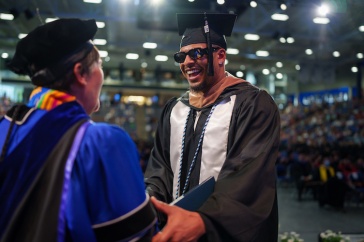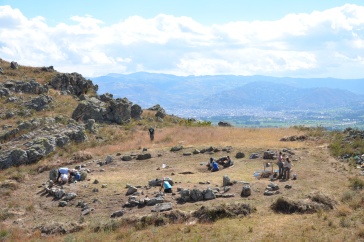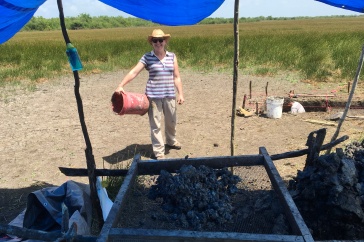New Hampshire has been a prolific producer of Peace Corps volunteers over the years, and 2014 was no exception. The state ranked fifth nationally among states with the highest number of Peace Corps volunteers per capita, and UNH ranked 11th nationally among medium schools on the year’s list of the highest volunteer-producing colleges and universities with alumni serving in the Peace Corps. We caught up with a few UNH Peace Corps alumni to find out about their experience, what compelled them to join and what they are up to now.
Susanne Delaney ’93 got bit by the travel bug. The Economics-International Affairs/Spanish dual major spent her junior year studying abroad in Granada, Spain, and returned home with a desire to see more of the world. She joined the Peace Corps in 1994, traveling to Paraguay to work on environmental and health education. She spent her first three months in cross-cultural and technical training and learning the indigenous language — Guarani. Then she got to work in the community.
UNH Today: You worked in Paraguay’s industrial capital, Villeta. Tell us what you did there.
Delaney: There were a couple different things. Together with a rural health worker, Senora Fidencia, who had been trained by a previous Peace Corps volunteer, I treated more than 700 children with lice and educated them on the importance of general hygiene. I wrote a letter to the editor of my hometown newspaper, Foster’s Daily Democrat; they printed it, and the Lions Club sent anti-lice supplies. We started a health education campaign, going community to community to talk about nutrition, dental hygiene and general hygiene and how to avoid getting lice. But my biggest project involved a cement factory that was built but never properly finished. It was spewing silicate particles into the area, and people were getting sick; some were even contracting lung and skin cancer from the silicate dust. I worked with the community, including a local tree farmer who also worked at the factory, Epifanio, on what became a grassroots effort to plant 700 trees that would serve as a living blockade, helping to trap the silicate particles and keep them out of the residential area nearby. Grassroots solutions are key to any Peace Corps volunteer’s work — working WITH community members so they have ownership and pride in the solution.
UNH Today: How did your Peace Corps experience prepare you for life?
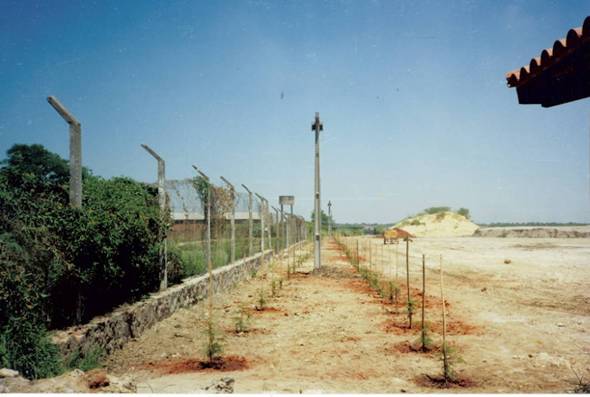
Saplings planted along border of unfinished cement plant in Villeta, Paraguay (Photo: Susanne Delaney)
Delaney: When I first started working on the project with the cement factory, I talked with a U.S. agency that suggested there might be funds to finish the factory, which would have solved the problem. However, that fell through, and I learned the hard way that the “quick fix” is not usually the solution that will stick. Hard work pays off.
UNH Today: The Peace Corps once had the tagline “the toughest job you’ll ever love.” Is it true?
Delaney: Yes. You don’t realize when you’re getting into it what you’re embarking on. It’s not like a day job, clocking in at nine then going home at five. You become an integral part of the community. You have to learn the community’s needs; get to know the people, then educate and train them in the areas important to them so when you’re gone they’ll be able to continue the projects you started together. Essentially you’re trying to work yourself out of a job — helping the community become self-sustaining. In the process, you become really attached to the community members. That was a part of the job I enjoyed most, but it was hard because I wanted to be able to help everyone.
UNH Today: What was the biggest impact of your Peace Corps experience?
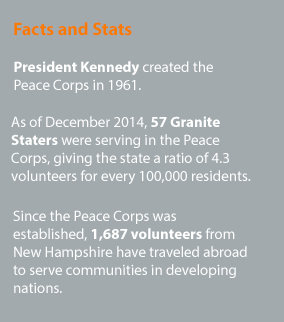
Delaney: Learning humility. You think you’re going to save the world but you realize that, instead, you’re learning so much more from the community members. I was living day in and day out in a South American village where many people barely had enough food for their family yet they invited me into their homes for meals regularly. They were happy with what they had. Humility is a hard lesson to learn, but it carries you through life.
UNH Today: Why do you think UNH and New Hampshire are such fertile breeding grounds for Peace Corps volunteers?
Delaney: New Hampshire is a pretty wholesome state. People have a really strong work ethic, and we’re kind of a hardy people who have a sense of adventure and want to get outside of the state to see what’s out there. UNH has a strong study abroad program and the Center for International Education really makes sure that students know about the opportunities available to them. The Peace Corps is a great option for students who come back from studying abroad wanting more.
Once a volunteer ...
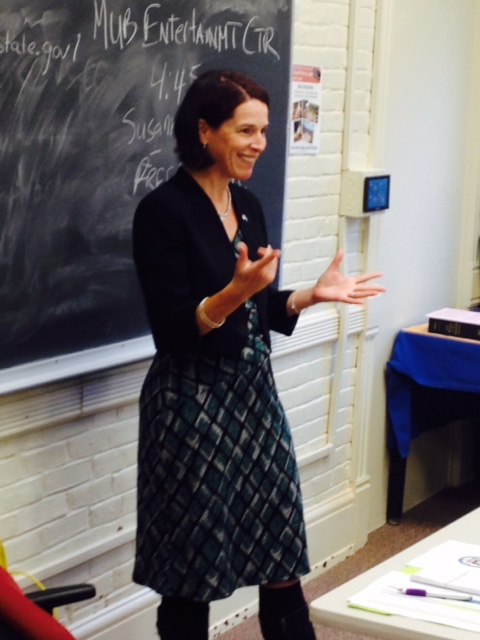
Susanne Delaney, back on campus in the fall of 2014 for the
UNH Center for International Education's Happy Returns
speaker series.
After serving in Paraguay, Delaney went on to become a regional recruiter for the Peace Corps, working out of its Boston office. Today, she works as a customer service manager for the U.S. Department of State at its National Passport Center in Portsmouth. And she still has a strong sense of service: over the last six years, Delaney has served on Portsmouth’s Economic Development Commission, the New Hampshire Travel Council and the Tenant’s Association at Pease International Tradeport, and in 2005, the former UNH cycling team member revived the Portsmouth Criterium bicycle race and then organized the race for eight years straight.
Last fall, she returned to campus to speak with UNH students about her experiences and career path. “In the international affairs major at UNH, I learned about leadership and diplomacy,” she said at a luncheon for female economics majors, “but I put those skills into play in the Peace Corps. You’ve got to be willing to stick your neck out and try different things, because it’s when you put yourself in uncomfortable positions that you really learn.”
Moroccan Dispatch
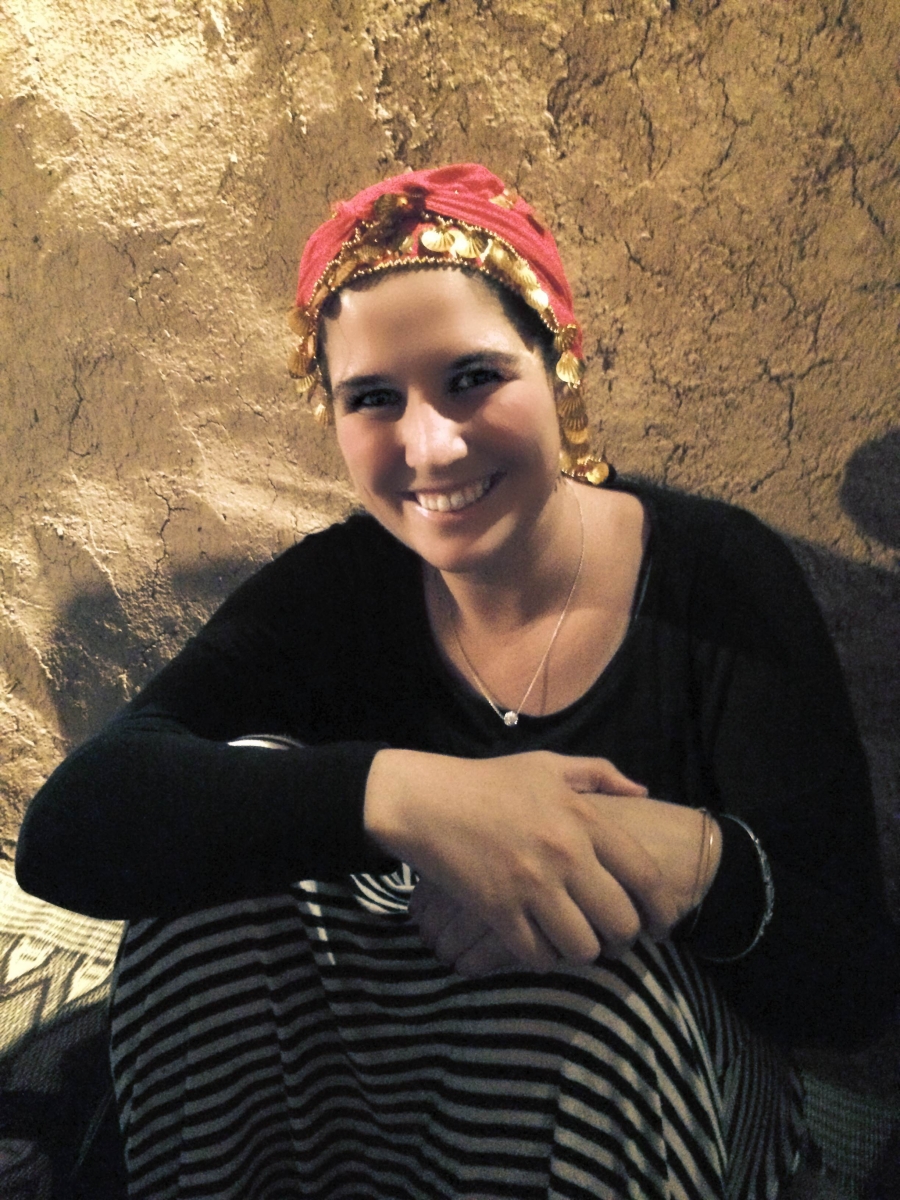
The idea to join the Peace Corps came to Sarah Collins ‘13 during Christmas break of her junior year as a psychology major at UNH. “I saw a friend of a friend who was on vacation during his Peace Corps service. He began to talk about how he felt being fully immersed in a culture, and how he could not imagine his life any other way. That short conversation, which I doubt he even remembers, changed my outlook on life. At that moment I realized I had never left New England for longer than two weeks at a time, and this was the only culture I had ever known. This made me yearn for more. The next day I went home, researched Peace Corps and had my mind made up that this is what I wanted to do.”
Today, Collins is a youth development Peace Corps volunteer in the south of Morocco, where she and her colleagues teach English, promote gender equality programs, teach sexual and basic health, lead sports and physical activity sessions and work on various environmental projects.
Currently Collins is working on a “Health Caravan project. “My Moroccan counterpart and I plan to travel to more than 10 small villages in the south of Morocco to promote sexual health for the women and dental hygiene for the children,” she says.
The New Hampshire native is living in Tamnougalt, a very small village along the Draa River that has “some of the most amazing people you have ever met,” she says. “South of Morocco is especially known for its generosity and welcoming, which has made for an easy transition. It is hard to go anywhere without being asked to come in for a glass of tea or a quick meal, because people already view you as part of the community.”
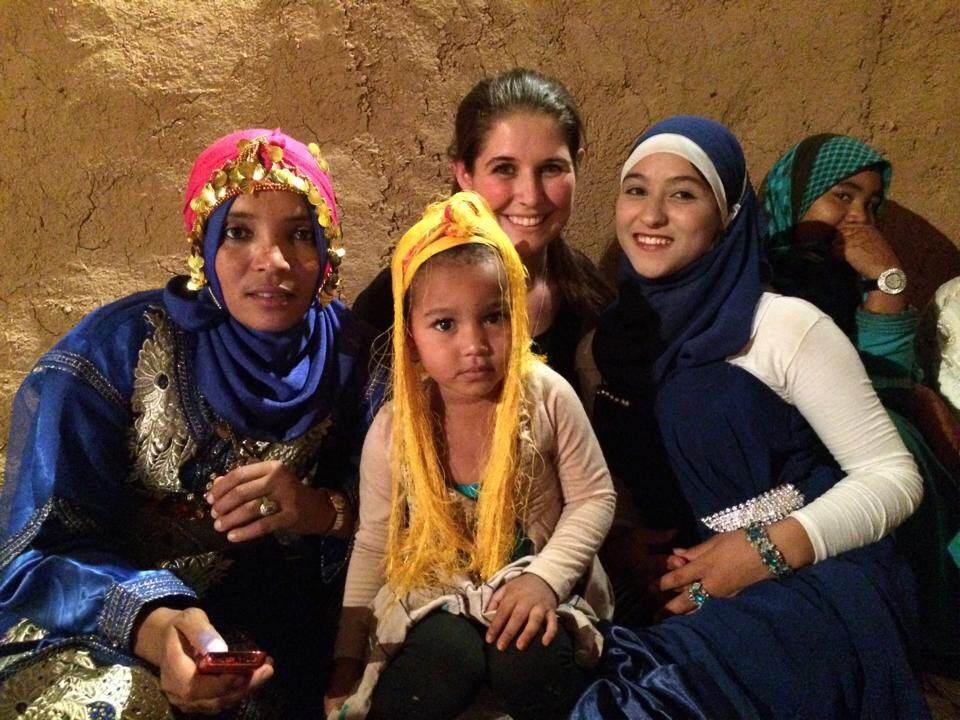
Collins feels UNH is fertile breeding grounds for Peace Corps volunteers “because we all have a good spirit. Peace Corps volunteers are often friendly, excited and ready for adventure, and I feel that that is the atmosphere that UNH perpetuates.”
As for why New Hampshire turns out so many volunteers, she says Granite Staters are hard workers. “Peace Corps is a lot of fun, but it’s a lot of hard work. Being away from friends and family and thrown into a completely new culture is difficult, but people from New Hampshire are resilient.”
Sarah Collins is raising funds for the Moroccan Health Caravan project through a GoFundMe campaign. To donate, visit: www.gofundme.com/sarahgoestomorocco.
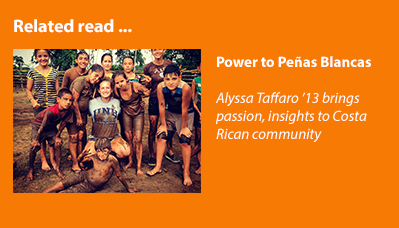
-
Written By:
Michelle Morrissey ’97 | UNH Magazine | michelle.morrissey@unh.edu















































